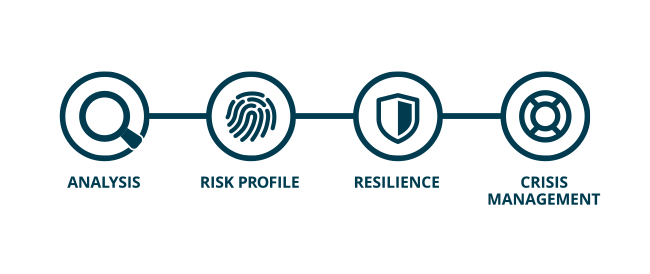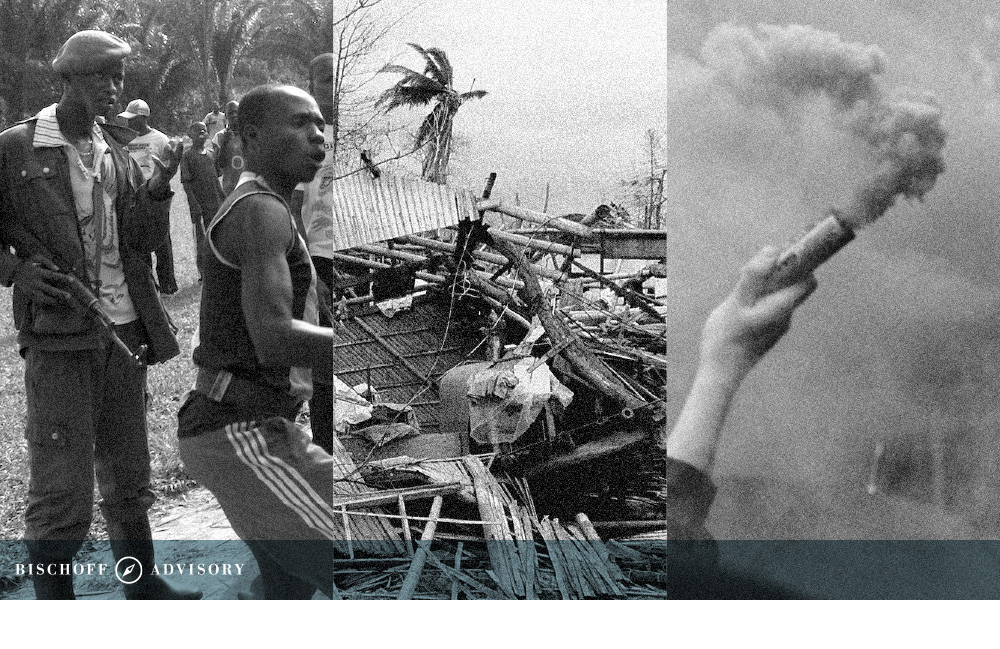We enable projects

Bischoff Advisory specializes in advising companies and organisations on the mitigation of operational risk in areas with uncertain, complex or even hazardous environments. This encompasses analysing the context, ensuring foresight, proper planning and risk mitigation, enhancing organisational resilience, implementing Duty-of-Care, business continuity programmes and protecting assets and reputation.
We have an extensive track-record in seeing complex projects through, finding the critical path to securing access to markets, resources or those in need. Our advice is always based on a thorough analysis of structures, patterns and dynamics.
Analysis
We provide you with foresight
Our approach as business and project enablers is analytical. We employ state-of-the-art analytical techniques, which have been developed and implemented by leading Western intelligence agencies over the last 15 years. Through our international network we have substantial data which keep us at the front foot of current events. We supply strategic insights, threat assessments, human terrain mapping and analytical training.
Risk Profile
We determine your risks and exposure
All risks are a function of threats, vulnerability and degree of exposure. After analysing and ranking the relevant threats, we do a vulnerability and exposure assessment of the organisation. This involves evaluating staff, structures, systems and their interaction. We advise on documentation including policies, procedures and plans. Finally, we examine patterns of movement and exposure both historically and expected.
Resilience
We strengthen your resilience
Ultimately, resilience is a measure of how well the organisation handles uncertainty. Based on the organisational risk profile we advise on implementation of Duty of Care. We suggest improvements to structures, policies, plans and procedures to enhance situational awareness, agility and preparedness – building your resilience to adversity. No matter how well we analyse, how carefully we plan, train and equip staff, things go wrong. There will be incidents with a varying degree of seriousness. Most projects and organisations are statistically bound to face a major crisis every 5 years – even in more stable settings.
Crisis Management
We make you emerge stronger from crises
Ideally organisations emerge stronger from a crisis. The quality of your intervention is a function of your preparedness. Odds are better, if resources have been allocated, and a response plan has been developed prior to a crisis. When a crisis hits, taking ownership is critical. Gathering appropriate information, timely analysis, deliberate decisions, identifying and mapping key stakeholders and communicating clearly are bedrock elements in crisis management. Then, acting as a team and holding to your values is equally important. We train you in all aspects and put your crisis management team to the test, in fast-paced realistic scenarios.
—
Other services
As a complement to the above services, we offer:
- Audits and compliance reviews
- Incident investigations
- Opinion and commentary pieces – in both written and electronic media
- Briefings on specific geopolitical or security related issues.
—
Cases
NGO
Most Scandinavian NGOs employ subject matter experts, often with extensive travel experience. They also send many visitors, volunteers and ambassadors with less experience to projects abroad. Sometimes they have a safety and security policy, some procedures, take out travel insurance including medical coverage and may have staff on duty 24/7. They will nearly always require threat assessments, advice on mitigation, training and a better incident and crisis management set-up.
SME
Unless they partner with larger companies or have partners abroad, most SME’s are ill prepared for adversity. They often lack a strategic perspective on risk, are ill informed about risks, trends and dynamics and have low resilience. They often lack dedicated staff, and safety & security will often fall on either the COO or the HR director. Outsourcing is a distinct possibility.
Large company
Larger companies often have Safety and Security policies, HSE(Q) is tight in known settings, situational awareness is good on most levels. HSE(Q) staff do compliance checks and audits and know most soft spots. Preparedness is generally sound, and the organisation often intervene on behalf of misfortunate travellers. Larger companies may require assistance in unfamiliar areas or with larger events.
—
 Contact
Contact
Jacob Kaarsbo
+45 70 70 74 56
Send e-mail

